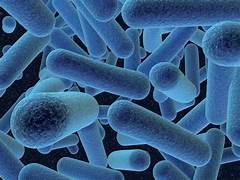Three people have died and three others have been hospitalized after drinking milkshakes contaminated with Listeria bacteria from a restaurant in Tacoma, Washington, health officials say.
Investigators found the outbreak was linked to ice cream machines that were not cleaned properly at a Frugals restaurant, according to a release from the Washington State Department of Health. Listeria can affect people up to 70 days after consumption and the machines were used through August 7, the release said.
In a statement, Frugals said it was “deeply saddened” by the news and cooperating with authorities.
The six individuals were hospitalized between February 27 and July 22 and genetic fingerprinting from the bacteria inside the milkshakes showed it was the same strain of Listeria that triggered the hospitalizations, the health department says.
Two of the three who survived said they had a milkshake from the same Frugals before getting sick.
The health department said no other Frugals restaurants are believed to be affected.
“Out of an abundance of caution for our customers, we have also directed all milkshake machines in our other locations to be shut down and samples from these machines to be sent out for similar testing,” Frugals said in its statement.
“Although not required by (the Pierce County Health Department), Frugals will also undergo enhanced cleaning, safety and sanitization procedures across all product categories and at all store locations.”
Anyone who ate at the Tacoma restaurant between May 29 and August 7 and is showing symptoms of Listeria is urged to contact a doctor, the agency cautioned.
It typically affects older adults, pregnant women, infants and adults with compromised immune systems.
Pregnant women are approximately 10 times more likely to get listeriosis, and pregnant Hispanic women are 24 times more likely, according to the CDC.
Source: CNN News
What is listeria?
Source: FoodStandardsAgency










